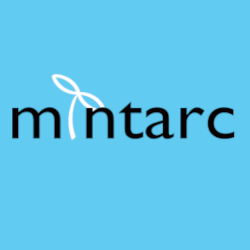PydioCells
From Mintarc Forge
Pydio Cells is a modern, open-source file sharing, synchronization, and document management platform designed to provide businesses and organizations with secure, scalable, and customizable solutions for managing their data. Built with a focus on privacy, flexibility, and enterprise-grade features, Pydio Cells enables users to maintain complete control over their files by hosting the platform on their own infrastructure or integrating it with existing storage systems. It is widely regarded as an alternative to proprietary cloud services like Google Drive, Dropbox, and Microsoft OneDrive, offering enhanced data sovereignty and compliance capabilities.
Pydio Cells organizes files into logical groupings called "Cells." These Cells act as independent workspaces that can be tailored for specific projects, departments, or clients. Each Cell is governed by granular access controls, allowing administrators to define user permissions with precision. Files and folders within a Cell can be shared internally or externally through secure links with options such as password protection, expiration dates, and download limits. This compartmentalized approach ensures that data remains organized while providing flexibility in collaboration.
It employs multi-layered encryption to protect data at rest and in transit using SSL/TLS protocols. For sensitive use cases, administrators can enable client-side encryption to ensure that files are encrypted before leaving the user's device. This zero-knowledge architecture means that even administrators cannot access encrypted content without the proper keys. Additional security measures include multi-factor authentication (MFA), rule-based access control (RBAC), and integration with identity management systems like LDAP/Active Directory or SAML for streamlined user authentication.
It supports compliance tools to meet regulatory requirements such as GDPR and HIPAA. Its audit trail feature tracks all user activities—such as file access, modifications, and sharing—providing detailed logs for accountability and compliance reporting. Administrators can monitor system health and enforce policies through an intuitive dashboard that centralizes management tasks.
Pydio Cells is built on a microservices architecture using the Go programming language. This design ensures scalability and reliability by allowing individual components to operate independently while communicating through lightweight protocols like gRPC. Organizations can deploy Pydio Cells on a single server or distribute its services across multiple servers for high availability and performance. The platform supports integration with a wide range of storage backends, including local file systems, S3-compatible cloud storage (e.g., AWS S3), Azure Blob Storage, Google Cloud Storage, NFS, FTP servers, and more. This flexibility allows businesses to leverage existing storage infrastructure while maintaining full control over data location.
It integrates with online office suites like Collabora Office or OnlyOffice (available in the enterprise edition) for real-time document editing within the platform. Teams can work together on documents without needing external tools, streamlining workflows and enhancing productivity. The platform also includes features like activity streams for tracking changes in real time and integrated chat functionality for team communication.
It offers two main editions: Cells Home, which is free and open-source for individuals or small teams; and Cells Enterprise, a commercially licensed version targeted at larger organizations. The enterprise edition includes additional features such as advanced security policies (e.g., IP-based restrictions), multi-tenancy support, workflow automation tools, premium integrations (e.g., OnlyOffice), and 24/7 professional support.
Administrators must ensure proper implementation of access controls and encryption settings to prevent vulnerabilities such as unauthorized access or exposure of sensitive metadata. Additionally, while the platform provides extensive customization options through APIs and plugins, these require technical expertise to implement effectively.
Its modular architecture ensures scalability while offering advanced features like granular permissions management, compliance auditing, encryption options, and seamless integration with existing IT infrastructure. By prioritizing data sovereignty and flexibility, Pydio Cells empowers organizations to maintain control over their information while fostering efficient teamwork in a secure environment.
